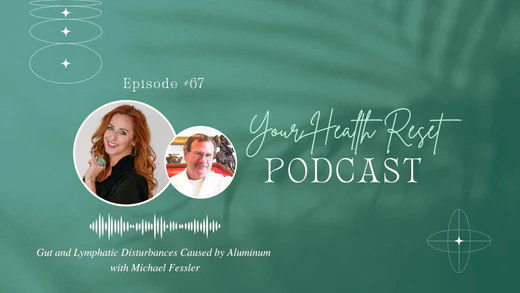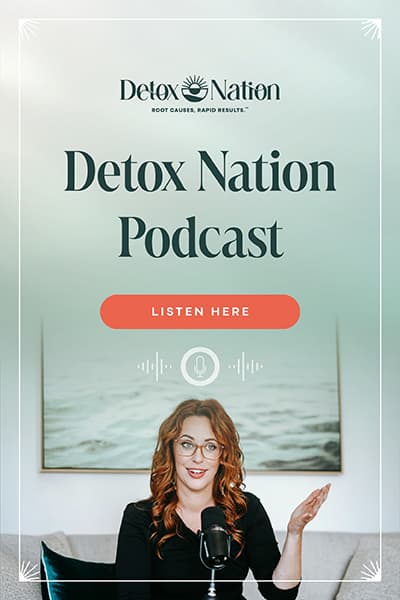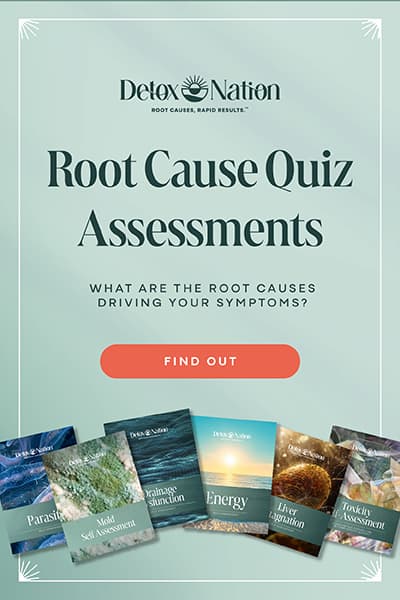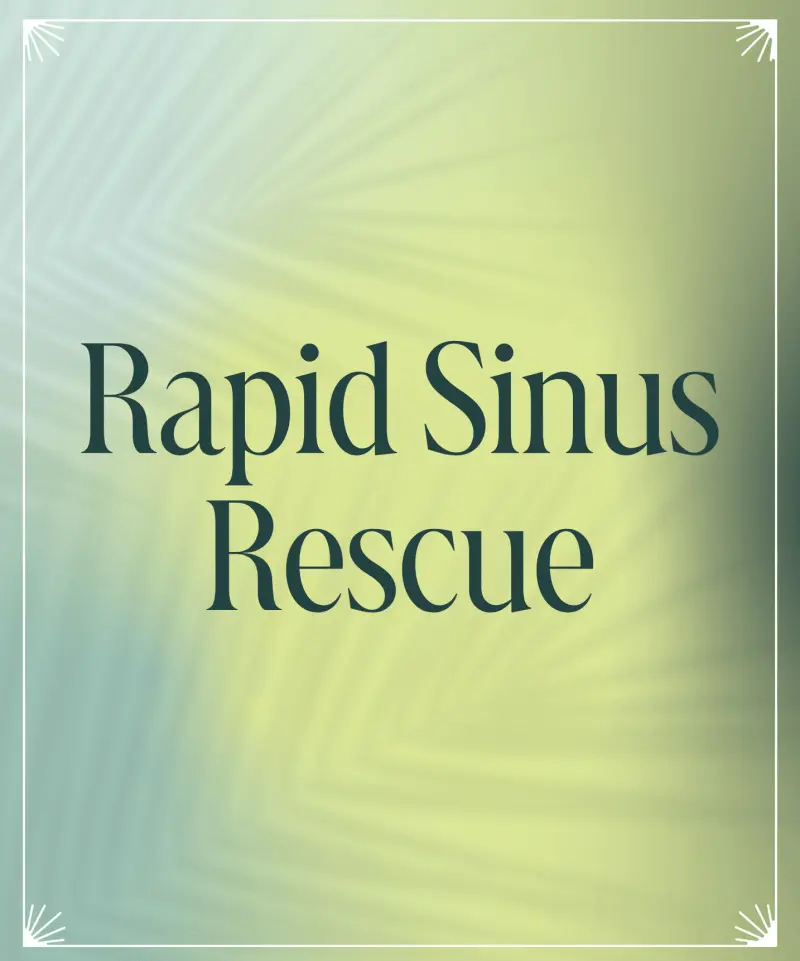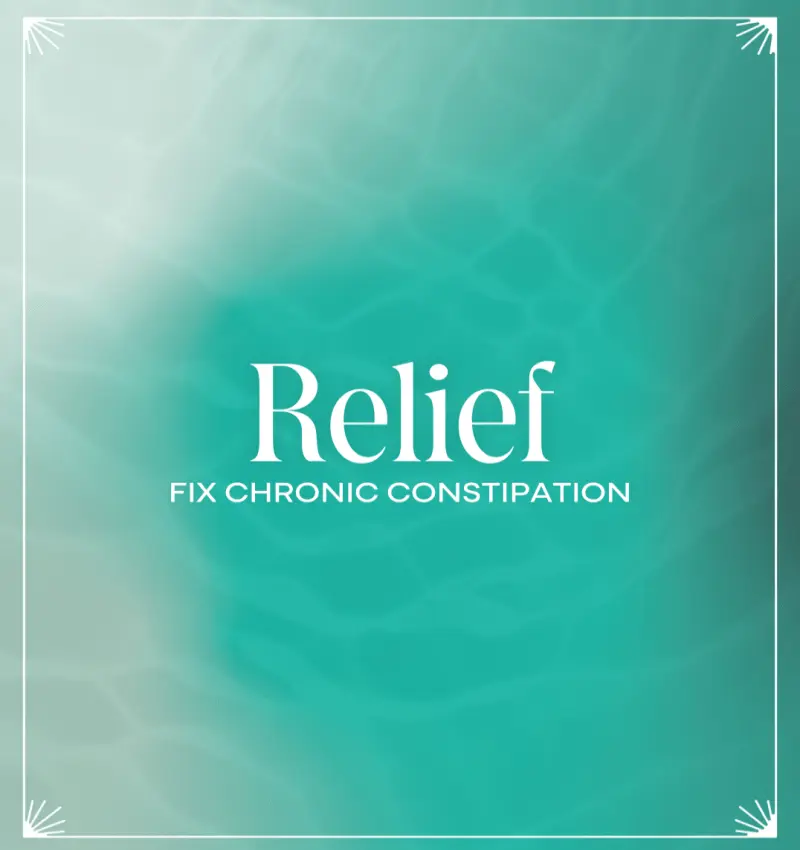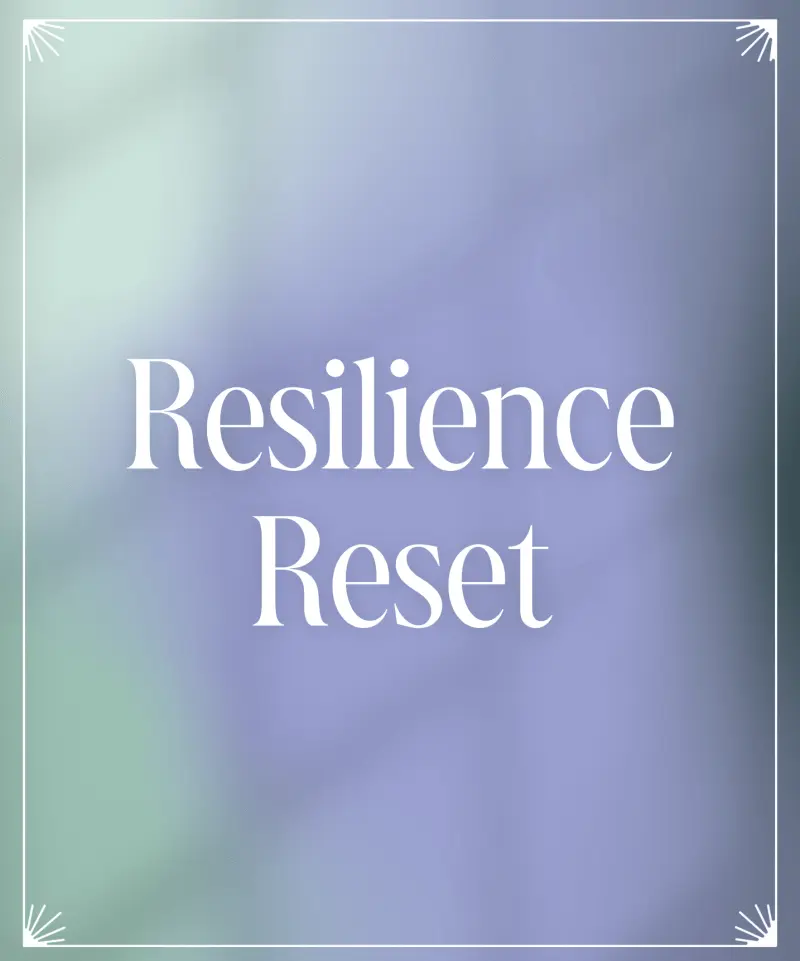Crohn’s disease (CD) can feel like being trapped in a relentless cycle of pain and unpredictable symptoms. The digestive discomfort, endless bathroom trips, and fatigue caused by this inflammatory bowel disease are enough to make anyone feel defeated. Tired of managing disease symptoms? Let’s look at the fixable culprits behind your signs and symptoms and get you on the path toward healing.
The classic version of CD: your digestive tract turns into a battleground, thanks to an immune system that’s somehow confused you’re the enemy.
It’s no wonder you’re exhausted when you’re dealing with abdominal pain that feels like you’re being stabbed from the inside, frequent trips to the bathroom, and a digestive system that’s on permanent “out of order.”
And mainstream medicine says, “Sorry, you’re stuck with it.”
But what if that’s not the whole story?
Instead of endless symptom management, let’s talk about the possibility that your Crohn’s isn’t “just” Crohn’s.
What if some of these symptoms were actually signs of something you could address head-on?
We’re diving deep here into the hidden culprits—the toxins, the parasites, the lifestyle triggers that might be throwing your gut out of whack and leaving you to pay the price.
Spoiler alert: your body wants to heal, and with the right approach, you can help it.
So, if you’re ready to stop symptom-chasing and start healing for real, keep reading. It’s time to take your health back, starting from the inside out.
Key Takeaways
- Common symptoms of CD include abdominal pain and weight loss.
- Hidden culprits include toxins, parasites, mold, and more.
- Your body wants to heal.
Understanding Crohn’s Disease
CD is described as a chronic condition that causes inflammation in different parts of the digestive tract. It can impact any area from the mouth to the anus, and the symptoms may vary widely among individuals.
What Is Crohn’s Disease?
The conventional system classifies Crohn’s as part of a group of conditions called inflammatory bowel disease (IBD).
As the term implies, IBD features inflammation in the bowel and includes Crohn’s disease and Ulcerative Colitis.
Unlike ulcerative colitis, which only impacts the colon, Crohn’s disease can affect any part of the GI tract and the entire thickness of the bowel wall.
In the conventional model, the cause of Crohn’s isn’t known or understood, so providers typically speak to a combination of genetics, environment, and dysregulated immunity (26, 28).
If you’re lucky, some may include gut disruption, stress, and diet (14, 29).
Mainstream medicine believes Crohn’s Disease is an inflammatory, incurable autoimmune disease that’s characterized by periods of flare-ups followed by remission phases where your symptoms play “hide-and-seek” (26, 29)
Depressing, right?
But what if your Crohn’s Disease isn’t Crohn’s Disease?
What if the cause of your symptoms is something completely knowable and fixable with a little work?
Let’s take a closer look!
Crohn’s Disease Symptoms
Let’s be real, the symptoms of CD are nobody’s idea of a good time.
Crohn’s is kind of the immune system’s version of getting lost with no GPS: it starts attacking your digestive tract, thinking it’s helping, but it’s causing chaos and wandering all over the place.
The signs and symptoms of Crohn’s are all about inflammation, and they can show up in ways that make you question everything about your current life choices.
Abdominal pain is the star of the show (29).
Think cramping, stabbing, and bloating all rolled into one.
It’s like your gut has a temper tantrum every time you eat or stress out.
And then there’s the diarrhea.
It’s not the “oh, I had too much coffee” kind—it’s the “I should know where allll the bathrooms are” kind.
Let’s just say Crohn’s does not make spontaneous road trips a pleasant option.
Then comes fatigue, because battling your own immune system is exhausting.
Think of it as your body’s way of saying, “Hey, I need a break, and I’m taking it, whether you’re okay with that or not.”
And while you’re busy being too tired to move, there’s also weight loss and nutrient deficiencies to deal with.
With your gut so inflamed, it’s tough for your body to absorb the vitamins and nutrients you need, so you start feeling weaker and maybe even a little spacey (hello, brain fog!).
Let’s not forget the mouth sores and joint pain that some folks deal with—just in case you thought the symptoms were going to stay politely in your gut.
These can feel like random add-ons but are actually a result of inflammation working its way out to other parts of your body.
With all of this going on with your digestion, it’s no wonder that you may have nausea and lose your appetite.
Oh – and you can also have rectal bleeding and bloody stools.
Lovely.
Just when you think you have CD figured out, it reminds you that no, it’s got a whole range of unpleasant surprises to keep you on your toes.
And here’s the kicker: Crohn’s is a shapeshifter.
Symptoms come and go, flare and ease up.
Some days, you might feel almost fine; others, you’re canceling plans, work, life, all of it.
It’s a lot, right?
But remember: these symptoms don’t define you, and they don’t have to stick around forever.
Your body has an amazing ability to heal and find balance.
With the right approach—dialing in anti-inflammatory foods, managing stress like it’s a full-time job, and resolving the true root causes—you can work toward bringing that overactive immune system back into line.
Ready to start? Take my quick Parasite Assessment Quiz.
You’ve got this. And when in doubt, just remember: this is fixable.
Take My Parasite Assessment NowConventional vs Root Cause Approach to IBD
Conventional treatments often focus on managing symptoms, while root cause methods address the illness itself.
Conventional Treatment
Conventional treatment usually involves medications to reduce inflammation and manage symptoms like abdominal pain and fatigue.
Doctors may prescribe anti-inflammatory drugs, such as corticosteroids, and biologics, which are designed to target specific parts of the immune system.
Immunomodulators suppress the immune response and leave you vulnerable to infections.
With all these drugs come side effects that may have you taking additional prescriptions, such as antibiotics for infections.
In some cases, surgery may be used to remove damaged sections of the digestive tract or to create an ostomy for waste removal.
Imagine having to poop in a bag – maybe for the rest of your life – due to something that could have been fixed!
The conventional approach often focuses on chasing symptoms, aiming to provide superficial relief instead of resolution.
Think of the mental, emotional, physical, and financial stress this causes.
How frustrated and let down do you feel, all because you didn’t get supported at the source of the problem?
Even worse, when underlying causes aren’t addressed, the inflammation and distress will continue and get expressed by the body in other ways.
The only way to banish Crohn’s Disease is by ripping out its roots!
Root Causes Matter
The root cause approach goes beyond treating symptoms, seeking to address the fundamental causes of Crohn’s Disease.
This method emphasizes healing your internal terrain and reducing exposures to potential triggers in the environment.
External Environment vs Internal Terrain
Addressing Crohn’s Disease effectively involves considering both your external and internal environments.
The external environment includes everything from pollutants to stress, while the internal terrain focuses on the proper functioning and coordination of all your bodily systems, including your gut.
Creating a clean external environment means reducing exposure to mold, metals, EMFs, harmful chemicals and stressors that can trigger flare-ups.
At the same time, working on your internal terrain involves cleaning out the gunk, creating an optimal milieu for vibrant health, and avoiding all the things that might harm your gut and cause Crohn’s Disease.
But what are the things that might trigger Crohn’s Disease?
Root Causes of Crohn’s Disease
Crohn’s Disease may be linked to several hidden factors. These include toxin exposure, mold issues, and parasites, all of which cause gut imbalances and immune system dysregulation.
Toxin Overload
Every day, you encounter potentially hundreds of various toxins like pesticides, herbicides, and industrial chemicals.
Our bodies were not designed for this onslaught and may have trouble keeping up with detoxification unless we provide specific support.
Many of these chemicals accumulate in your body, reaching dangerous levels in organs, fatty tissue, and bone.
These can include heavy metals and substances like glyphosate and atrazine.
Glyphosate and its formulations are known to cause intestinal and systemic diseases because they alter bacterial metabolism, mucus production, and intestinal permeability. They also damage the microvilli of the intestines and cause dysbiosis and immune dysfunction (30).
If you already have gut issues or any type of IBD, chemical exposures can make your symptoms worse.
Mold Toxicity
Mold releases mycotoxins, which are tiny particles that can be harmful to your body.
Living or working in places with hidden mold might lead to systemic inflammation and immune suppression.
This immune suppression fosters dysbiosis and creates an internal terrain that is hospitable to parasites and other invaders.
We’ll talk more about those nasty little nuisances in a minute.
In addition to external molds you might be exposed to, you also have a fungal microbiome in your gut.
This fungal microbiome is skewed in Inflammatory Bowel Diseases like Crohn’s so that it favors fungi at the expense of bacteria (27, 29).
Fungal dysbiosis has been recognized as a critical factor in CD due to the “persistent and excessive immune system activation.” (26)
One study found that Crohn’s patients have elevated antibodies against fungi even before their Crohn’s is diagnosed (28)
(Yes! Fungus may trigger Crohn’s Disease!)
Pinworms and Other Parasites
Parasites, like pinworms, disturb the balance in your gut.
This can lead to immune dysregulation and ongoing inflammation.
Parasites modulate your microbiome, change the composition and abundance of your microbiome, and can even change the metabolic activity of your microbiome (5, 14, 16)!
These tiny invaders can damage the endothelial lining of your intestines, making it difficult to maintain a healthy gut.
This leads to increased permeability and Leaky Gut Syndrome (5).
Furthermore, parasitic infections can mimic Crohn’s Disease.
Unfortunately, parasite testing by NON-parasite-literate practitioners is problematic, so patients can be misdiagnosed as having Crohn’s Disease when they are actually infected with parasites.
Direct smears, where they look at stool samples under a microscope, have a low sensitivity (19, 22).
These practitioners often don’t understand the symptomology or perform a second type of test, or a confirmatory test such as a biopsy or PCR test (11, 19, 22) (And even these tests aren’t great.)
This is dangerous, because the immune-suppressing treatment that is standard for Crohn’s disease can cause rapid dissemination of parasitic infection (4, 5, 19).
Not sure what to think? Here are some of the parasitic infections that mimic Crohn’s Disease
- Strongyloidiasis (4, 5, 19)
- Blastocystis (5, 12, 18) – this parasite settles in the large intestine of the host. One researcher found this parasite in 75% of the Crohn’s Disease patients in their 2023 study (12)!
- Anisakidosis (8)
- Giardiasis (9) – going all the way back to 1988, giardia infections are commonly found in Crohn’s patients.
- Entamoeba Histolytica (10, 22) – This pesky freeloader also likes to hang out in liver abscesses!
- Pinworms (11)
- Amebiasis (17, 21, 25) – A 2019 study with almost half a million subjects found that a previous gut infection of amoebas, viruses, or bacteria had an increased risk of Inflammatory Bowel Disease that lasted for TEN YEARS after the infection (23)!
- Cryptosporidiosis (24) – this ongoing study has found that a GI infection and dysbiosis are risk factors for Crohn’s Disease!
Common Symptoms of Root Causes
When dealing with toxic overload, mold toxicity, parasite infection, leaky gut, and other root causes, it’s common to experience a range of symptoms. These can include:
- Fatigue and low energy so bad you can hardly crawl out of bed
- Brain fog and cognitive impairment that make it hard to concentrate on daily tasks
- Skin issues such as rashes and embarrassing skin tags
- Chemical sensitivities or food sensitivities that seem to bother only you
- Itching around the anus
- Bloating and gas that make you reach for your baggy pants
- Joint pain and muscle aches even in the absence of activity
- Persistent sinus infections and other recurring infections are making you sick all the time
- Hormonal imbalances
- Liver and bile congestion
- Mood changes, including anxiety and mood swings
- Unexplained weight loss or nausea
Don’t these sound familiar?
They can all be symptoms of Crohn’s Disease.
So maybe your Crohn’s Disease isn’t Crohn’s Disease.
How to Address Root Causes of Crohn’s Disease
Focusing on the root causes of Crohn’s Disease involves detoxifying the body, clearing mold and mycotoxins, and dealing with parasites.
Detoxification and Gut Healing
To support your gut and overall health, it’s important to tackle environmental toxins and heavy metals.
You can do this through exposure prevention and detox strategies that cleanse your body.
Use herbal supplements and detox binders like activated charcoal or clay to help bind toxins and remove them from your system.
Supporting your liver and drainage pathways is key in detox, but every body is different in terms of what it can comfortably tolerate.
A detox-literate practitioner can help you navigate detoxification and gut healing in a way that works with your body.
Mold Remediation and Mycotoxin Detox
Mold and mycotoxins pose significant threats to your health and may contribute to Crohn’s Disease.
If you’re exposed to mold, remediate your environment by removing moldy items and using air purifiers with HEPA filters.
Hire a professional mold remediation company to take care of infestations – your health is too important to risk.
This step is crucial for preventing ongoing exposure.
Once external sources of exposure are removed, you must remove the internal sources as well.
Parasite Cleansing
Parasites disrupt the balance and function of your gut – a natural parasite cleanse can help.
It’s essential to optimize your internal terrain to make it less hospitable to parasites.
This involves maintaining a balanced gut microbiome and eating a nourishing diet rich in nutrients and low in sugar.
Regular cleansing can prevent recurring infestations, improving your gut health.
Long-Term Healing for Crohn’s Disease
Achieving long-term healing for Crohn’s disease involves managing inflammation and avoiding known triggers as you address root causes. This might include focusing on a gut-healthy diet, steering clear of specific food triggers, and providing ongoing support for your body’s detox processes.
Eat a Gut Healthy Diet
A diet rich in whole foods can help support long-term health.
You should aim to eat organic foods that reduce exposure to harmful toxins like glyphosate and atrazine.
Anti-inflammatory foods such as fruits, vegetables, and healthy fats can promote healing, but make sure to wash all produce before you eat it!
Consider incorporating foods like avocados, coconut oil, and nuts into your meals.
Stay hydrated with distilled water to support digestion and reduce irritation.
Avoid Common Triggers
Identifying and avoiding common dietary triggers can make a big difference for those with Crohn’s disease.
Processed foods, sugar, dairy, and gluten are often problematic, as are a litany of food additives.
These can trigger flare-ups, making symptoms worse.
You might need time to figure out which foods are best avoided.
Learn to read food labels and keep a food journal to help track symptoms and pinpoint triggers.
By eliminating these foods, you can reduce the chance of flare-ups and promote gut health long-term.
Ongoing Detox Support
Supporting your body’s detox processes helps manage Crohn’s disease and foster long-term healing.
Focus on regular routines that aid detoxification, like staying hydrated, performing dry brushing, having good bowel movements, enjoying appropriate exercise, and eating fiber-rich foods.
These steps can help cleanse your system naturally.
Maintaining a clean internal environment helps keep both your gut and overall health in good shape for the long haul.
Conclusion
Living with Crohn’s might feel like you’re constantly walking a tightrope, juggling flare-ups, food reactions, and a laundry list of symptoms.
But the power to heal doesn’t come from masking your symptoms—it comes from taking back control of your health, one root cause at a time.
It’s not always easy, but it’s possible.
By addressing the toxins, managing the mold, and finally kicking those hidden parasites to the curb, you’re doing more than symptom-chasing—you’re helping your gut heal for the long run.
The truth?
No doctor, no drug, no magic pill is going to do this for you.
Every effort you make gets you closer to a life where Crohn’s isn’t calling all the shots.
Because your body is always working to heal, even when it’s tired and struggling.
Keep giving it the right tools and you might just be amazed at what’s possible.
Ready to start? Take my quick Parasite Assessment Quiz.
You’ve got this. And when in doubt, just remember: this is fixable.
Take My Parasite Assessment NowFrequently Asked Questions
What are the early signs of CD?
Symptoms include diarrhea, abdominal pain, and fatigue. These signs can sometimes be mild and easily mistaken for other conditions. It’s important to pay attention to these early signals, especially if they persist.
Can your diet influence symptoms of CD?
Yes, your diet can have a big impact. Reducing foods that trigger inflammation, like dairy, and increasing fiber through fruits and vegetables, can help manage symptoms. Lifestyle changes like avoiding smoking and taking certain supplements can also improve your quality of life. A 2023 study in mice found that a typical Western diet high in fats and sugar increased the risk of CD in the Mom and altered the gut microbiome and bile acid metabolism in her offspring (31).
What are the potential complications if CD goes untreated?
Severe complications of untreated Crohn’s Disease include bowel obstruction or malnutrition. CD is also associated with an increased oxidative stress (2) and risk of cardiovascular disease (15).
![Understanding Crohn's Disease: Symptoms and Causes of IBD Explained [BLOG]](https://detoxnation.com/wp-content/uploads/2025/03/UNDERSTANDING-CROHNS-.webp)


